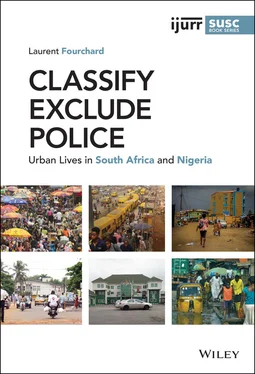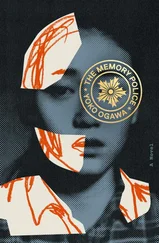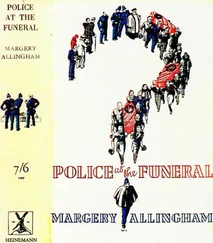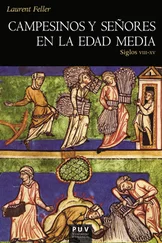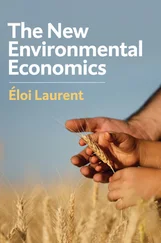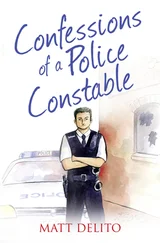Classification: LCC HN801.Z9 M264613 2021 (print) | LCC HN801.Z9 (ebook) | DDC 305.5/6809669–dc23
LC record available at https://lccn.loc.gov/2020043244LC ebook record available at https://lccn.loc.gov/2020043245
Cover Design: Wiley
Cover Images: A local street of Lagos by Factual Evolution Media covered under the CC‐BY‐SA 4.0, A street in Lagos, Nigeria by Jaimz height‐field is covered by the CC‐BY license, Lagos Street at high tide by ISeeAfrica is licensed under the Creative Commons Attribution‐Share Alike 4.0 International, Mushin Market in Lagos Nigeria by Omoeko Media is licensed under the Creative Commons Attribution‐Share Alike 4.0 International, Nurtw Lagos state chapter, Agege, Lagos by Joseph Omobolanle Akinniyi, Oshodi by Laurent Fourchard
Series Editors’ Preface
IJURR Studies in Urban and Social Change Book Series
The IJURR Studies in Urban and Social Change Book Series shares IJURR’s commitments to critical, global and politically relevant analyses of our urban worlds. Books in this series bring forward innovative theoretical approaches and present rigorous empirical work, deepening understandings of urbanisation processes, but also advancing critical insights in support of political action and change. The Book Series Editors appreciate the theoretically eclectic nature of the field of urban studies. It is a strength that we embrace and encourage. The editors are particularly interested in the following issues:
Comparative urbanism
Diversity, difference and neighbourhood change
Environmental sustainability
Financialisation and gentrification
Governance and politics
International migration
Inequalities
Urban and environmental movements
The series is explicitly interdisciplinary; the editors judge books by their contribution to the field of critical urban studies rather than according to disciplinary origin. We are committed to publishing studies with themes and formats that reflect the many different voices and practices in the field of urban studies. Proposals may be submitted to editor in chief, Walter Nicholls ( wnicholl@uci.edu), and further information about the series can be found at www.ijurr.org.
Walter Nicholls
Manuel Aalbers
Talja Blokland
Dorothee Brantz
Patrick Le Galès
Jenny Robinson
This book is located at the crossroads of comparative urban studies, history and political science using historical and ethnographic methods to provide multiple historicity, from the colonial to contemporary periods. It is largely the product of a trajectory related to the functions I have been able to perform, to the modalities of the research conducted in South Africa and Nigeria but also and above all to professional and friendly encounters that have nourished my personal reflection for the past twenty years.
As director of the French Institute for Research in Africa (IFRA Nigeria) between 2000 and 2003, I benefitted from the support of researchers who introduced me to the contemporary history of Nigeria including Olufunke Adeboye, Olutayo Adesina, Saheed Aderinto, Rufus Akinyele, Isaac Olawale Albert, Toyin Falola, Dele and Peju Layiwola and Rasheed Olaniyi. I have also benefitted from the support of IFRA during all these years to present my work during seminars or master classes in collaboration with Brian Larkin, Élodie Apard, Émilie Guitard and Ismael Maazaz. Many friends and colleagues sensitise me into topics of urban governance, security, party politics and social history in the first years of 2000 (Claire Bénit‐Gbaffou, Catherine Coquery‐Vidrovitch, Alain Dubresson, Philippe Gervais‐Lambony, Odile Goerg, Sylvy Jaglin, Alan Mabin, Dominique Malaquais and AbdouMaliq Simone).
Appointed as a research fellow in 2004 at the Centre for African Studies (CEAN renamed LAM in 2011) of the Institute for Political Studies (IEP) in Bordeaux, I have strengthened my interest in comparative research between South Africa and Nigeria through numerous seminars and informal discussions with many Bordeaux‐based scholars: Jean‐Nicolas Bach, Louise Barre, Léa Barreau‐Tran, Jean‐Philippe Berrou, Vincent Bonnecase, Chloé Buire, Michel Cahen, Hélène Charton, Denis Constant Martin, Jean‐Pierre Chrétien, Mathias Delori, Christine Deslaurier, Dominique Darbon, Alain Durand‐Lasserve, Vincent Foucher, Didier Galibert, Marc‐Eric Gruénais, Comi Toulabor, Daouda Gary‐Tounkara, Jean‐Hervé Jézéquel, Alessandro Jedlowski, Chloé Josse Durand, Jean‐Baptiste Lanne, Claire Médard, Hervé Maupeu, René Otayek, Wyclife Othiso, Gilles Pinson, Céline Thiriot, Lucie Revilla, Alain Ricard, Ophélie Rillon, Emmanuelle Spiesse, Magali della Sudda and Djemila Zeneidi.
As a visiting scholar at the University of Cape Town (UCT) in 2008–2009, several colleagues guided me in my fieldwork and my readings and many invited me to present the results of my research: Simon Bekker, Clive Glaser, Maanda Mulaudzi, Sophie Oldfield, Susann Parnell, Edgar Pieterse, Jeremy Seekings, Christopher Saunders, Jennifer Robinson, Elrena van der Spuy, Clifford Shearing, Steven Robins and Kees van der Waal. At the same time, I and Simon Bekker of the University of Stellenbosch carried out a broad collective research on the government of Africa’s cities, which greatly stimulated me in my comparative approach. At the same time, I shared many of my research interests with French and South African PhD students and researchers: Claire Bénit‐Gbaffou, Julie Berg, Chloé Buire, Lydie Cabane, Adrien Delmas, Vincent Darracq, Sophie Didier, Jeremy Grest, Liela Groenewald, Mariane Morange, Elizabeth Peyroux, Aurelia Segatti, Myriam Houssay Holzschuch, Marie Huchzermeyer and Jean‐Fabien Steck. In 2011, a stay at Oxford under the Oxpo program allowed me to receive in‐depth feedback on my work on vigilantism and the manufacture of delinquency in Nigeria and South Africa by Jocelyn Alexander, Elizabeth Cooper, Adam Higazi, Gary Kynoch, Jimam Lar, Kate Meagher, David Pratten and Olly Owen.
Joining the Centre for International Relations (CERI) in 2015 reinforced my interest for a historical and economic sociology of politics largely inspired by the European network of the analysis of political societies (REASOPO) coordinated by Jean‐François Bayart and Béatrice Hibou and by co‐organising the seminar on ‘violence and citizenship in Africa’ with Richard Banégas, Roland Marchal and Sandrine Perrot or by participating in the project on ‘the social and political life of identity papers’ coordinated by Richard Banégas and Séverine Awenengo Dalberto. Many chapters bear the traces of these discussions. My previous work on police work found a comparative extension outside the African continent by joining a research group on comparative vigilantism (GRAV) set up by Laurent Gayer and Gilles Favarel‐Garrigues. I also developed an interest in cross‐cutting research outside Africa, through my participation at the Urban School of Sciences Po, with a team including Fatoumata Diallo, Brigitte Fouilland, Charlotte Halpern, Patrick Le Galès, Côme Salvaire, Dennis Rogers and Tommaso Vitale. The feedback of master students of the urban school was also central to me.
This book has also been fuelled by numerous discussions with the members of the editorial boards of Africa , the Journal of African History and of the International Journal of Urban and Regional Research ( IJURR ) (Rifke Jaffe, Jennifer Robinson, Lisa Weinstein among many others) and members of the Politique Africaine , including Marie‐Emmanuelle Pommerolle, with whom I was co‐editor‐in‐chief from 2009 to 2012. I benefitted from intense exchanges conducted in the summer schools in comparative urban studies of the journal IJURR , thanks to the complicity of Claire Colomb, Yuri Kazepov, Patrick Le Galès, Eduardo Marques, Jeremy Seekings and Jennifer Robinson as well as those conducted in Marrakesh Winter School on the temporality of politics organised by the Chair of Comparative African Studies at the University of Rabat (Jean‐François Bayart) and by a team of researchers from the Association of the journal Politique Africaine (Séverine Awenengo Dalberto, Fred Eboko, Thomas Fouquet, Nadia Hachimi, Didier Péclard, Marieme N’Diaye, Boris Samuel, Etienne Smith).
Читать дальше
